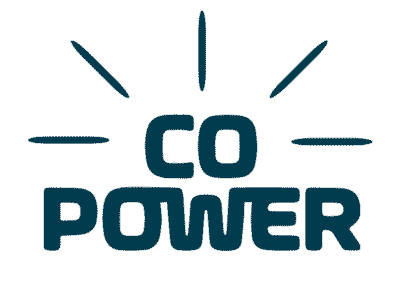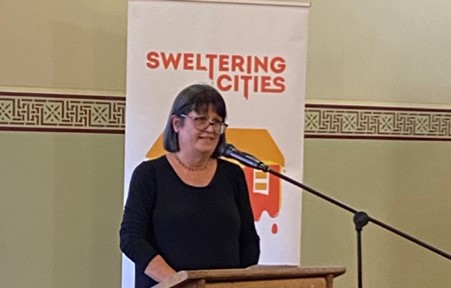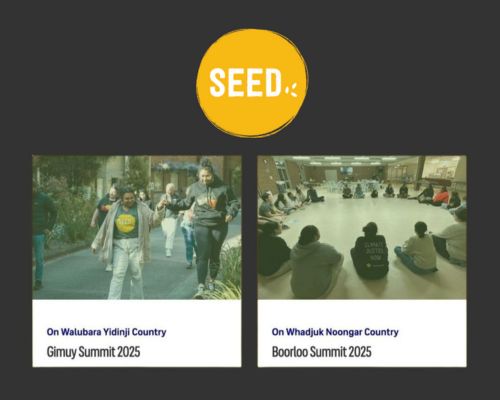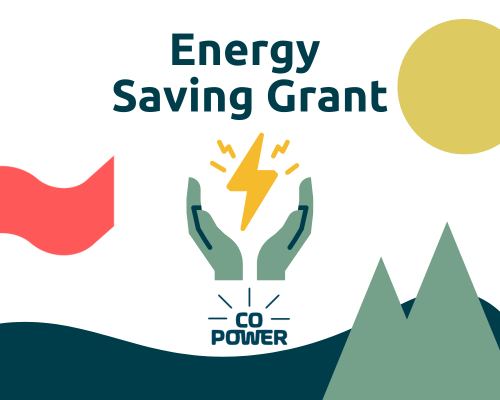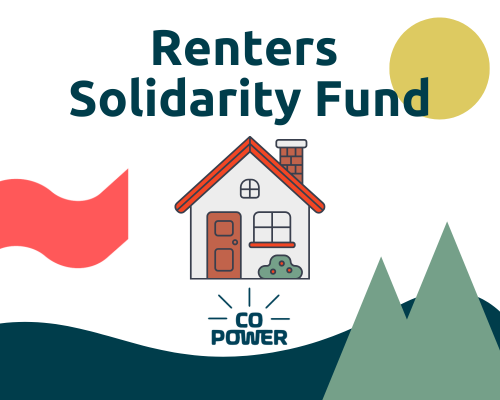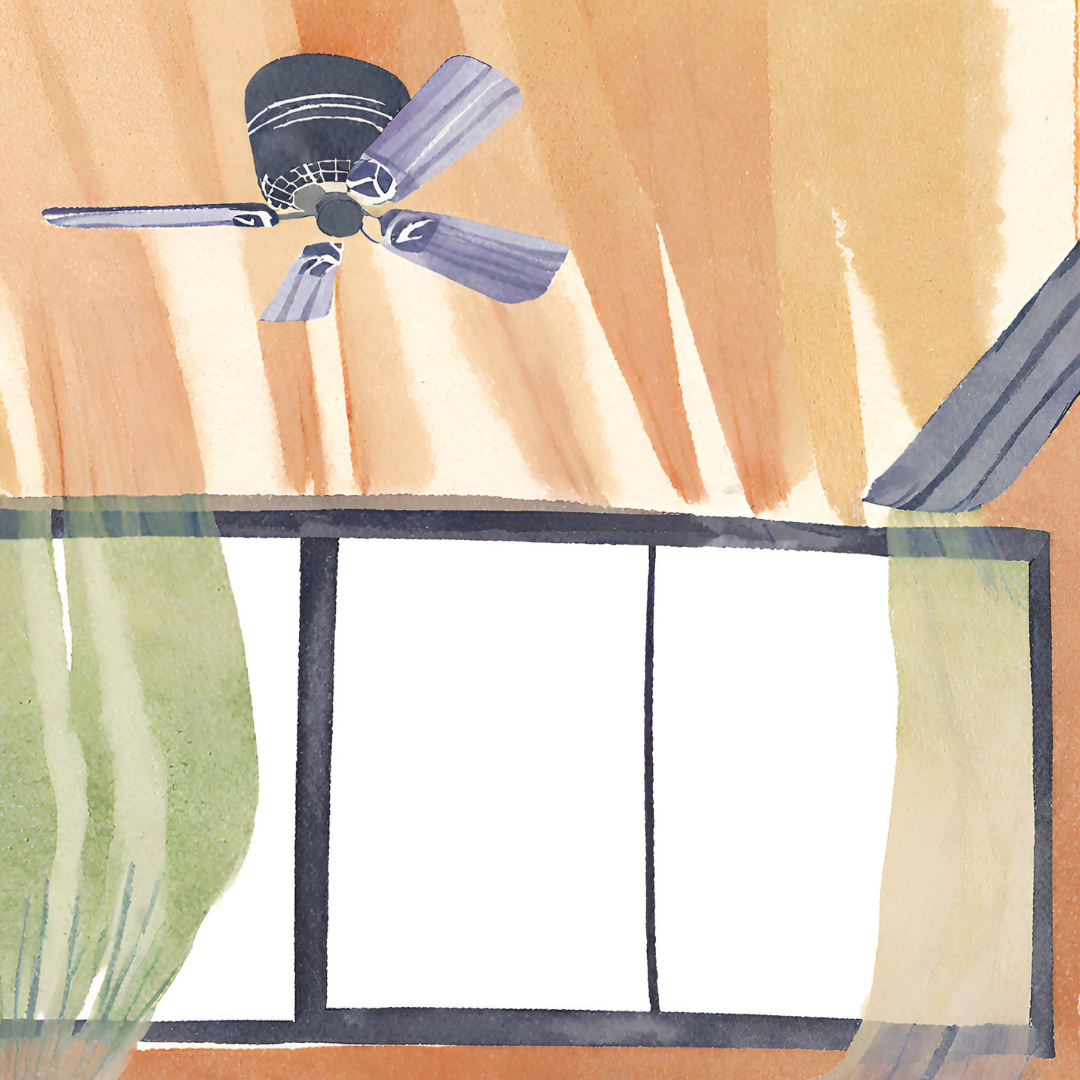
Windows, fans and shutters.
December 4, 2023
Powering up
December 8, 2023By Alison Cooke, CoPower Customer member and Victorian renter
I am a renter in Victoria, believe in energy efficiency and want our reliance on burning fossil fuels smashed. I joined CoPower a few years ago when I was looking for an electricity retailer that had climate credentials and their values resonated with me. I have since volunteered with the Democratic Budget process and am now active in the Energy Efficiency Action Group as I think making all CoPower customers as energy efficient as possible within their means is an exciting target to aim for.
In October 2023, I was asked to speak at a Sweltering Cities event co-hosted with Renters and Housing Union (RAHU), as part of a panel of renters, doctors and housing experts – to share our lived experiences of living in rented houses in extreme heat. Extreme heat is a crisis that affects everyone, especially renters who are more likely to live in poorly built homes that become ovens during summer and why we need solutions urgently to keep our communities safe this summer and for the summers to come. The takeaway message from the event was “your home should keep you safe, it shouldn’t make you sick”.
I spoke about my rental journey in a gas-supplied house with no cooling. I talked about how my requests for simple cooling modifications like planting trees were rejected by the landlord. I recounted how I had to leave my house all day to keep safe and cool, including riding trains to do so. I noted that not being able to be in the house when it’s hot, and the effort of using Victorian Civil and Administrative Tribunal (VCAT), incur additional expenses on top of skyrocketing rents. That when things have to be replaced, the landlord replaces them like-for-like, rather than upgrading to newer more energy efficient electric options. It was a reminder about the lengths that we renters have to go to to keep ourselves safe, and the financial burden of keeping cool and/or escaping the heat.
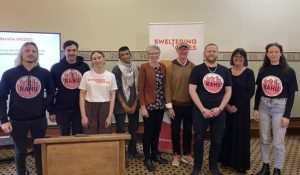
RMIT housing researcher Dr. Priya Kunjan spoke about the scale of the housing crisis and why renters are particularly vulnerable to extreme heat. They emphasised the need for minimum rental standards across all rental tenure types, including private, public and community housing, and the importance of including climate change adaptation measures in legislated rental rules so that renters can make simple modifications to keep themselves cool.
Alex Darton, a member of the RAHU and longtime renter, spoke of renting during hot summers and the importance of collective action and advocacy to secure safe homes for renters. He talked about the mental and physical impacts of renting in poorly insulated homes without any real power to make modifications to keep cool and emphasised the importance of advocating for better housing regulations including insulation in rental homes.
Alex Mackie, a resident in Flemington’s over 55’s high rise public housing with extensive experience as a technician in building services spoke. Drawing on his expertise in heating, ventilation and air conditioning, Alex outlined his concerns for the safety of Melbourne’s high-rise public housing buildings. He talked about serious problems in these buildings – amongst them inadequate cooling that puts residents at risk of heat related sickness. As a resident of high-rise public housing himself, he shared stories from other residents, including a woman who slept on her bathroom floor during summer because her bedroom was dangerously hot. He says there is an urgent need for safety improvements to protect residents from heat related illness, and is calling for better building regulations, improved maintenance, and increased community engagement to keep people safe.
Dr. Genevieve Cowie, a physician and member of Doctors for the Environment Australia spoke about the health impacts of extreme heat in the context of the climate crisis and rising temperatures. She shared the impact that extreme heat has on the health of people living in hot and uninsulated homes, and the health risks of prolonged exposure to extreme heat that range from dehydration, heat exhaustion and heat stroke, amongst others. She shared tips on how to stay safe and cool in the heat, and underscored the importance of proactive measures to protect people from heat related illness and death in rented homes. This requires urgent action on climate change to end our reliance on dirty, polluting fossil fuels that heat up our planet and our homes.
At the end of the night there was a call to action to keep the momentum going for Sweltering Cities Heatwave Safe Homes. As we are heading into an extremely hot summer, we need all hands-on deck to win heatwave safe homes for everyone. Here’s how you can get involved:
- Volunteer! Heading into a hot, El Niño summer, many of us are worried about how we will keep ourselves safe and cool. Right now, we need all hands to pressure the Victorian government to act. If you have any skills to share, especially if you are passionate about community outreach, networking, research, social media or graphic design- we would love to have you onboard the campaign. Click here to Apply and sweltering cities will be in touch.
- Write to your Victorian State MP: If we want to win safe homes for everyone, we need to keep the pressure on the Victorian government. Write a personal letter to your MP – they have to respond to you. The more of us that send letters, the more likely we are to reach victory (victory being homes that keep us safe, not make us sick). Get in contact with Sweltering Cities Community Campaigner, [email protected] who will send you all the information you need to reach out.
- Sign the petition calling for safe, cool homes: In Victoria, renters are living in dangerously hot homes because cooling is not a requirement in our rental rules (even though heating is!). This has to change. Sign the petition to call for cooling to be included in our minimum rental standards. This will save lives and protect our communities this summer and summers to come.
- CoPower customer members can share your stories on how you have reduced energy use and made your home more comfortable. Click here to share your story.
